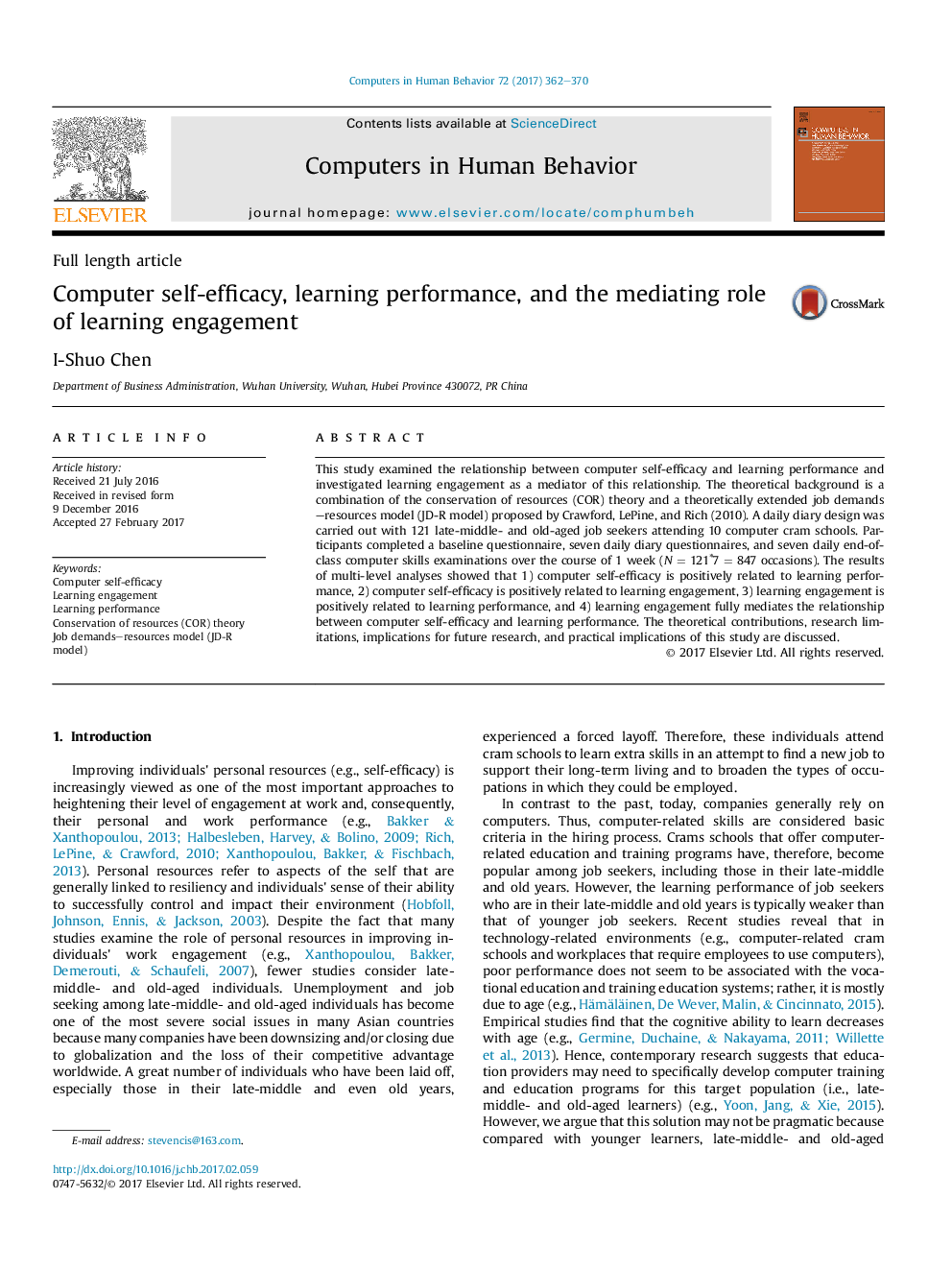| Article ID | Journal | Published Year | Pages | File Type |
|---|---|---|---|---|
| 4937106 | Computers in Human Behavior | 2017 | 9 Pages |
Abstract
This study examined the relationship between computer self-efficacy and learning performance and investigated learning engagement as a mediator of this relationship. The theoretical background is a combination of the conservation of resources (COR) theory and a theoretically extended job demands-resources model (JD-R model) proposed by Crawford, LePine, and Rich (2010). A daily diary design was carried out with 121 late-middle- and old-aged job seekers attending 10 computer cram schools. Participants completed a baseline questionnaire, seven daily diary questionnaires, and seven daily end-of-class computer skills examinations over the course of 1 week (NÂ =Â 121â7Â =Â 847 occasions). The results of multi-level analyses showed that 1) computer self-efficacy is positively related to learning performance, 2) computer self-efficacy is positively related to learning engagement, 3) learning engagement is positively related to learning performance, and 4) learning engagement fully mediates the relationship between computer self-efficacy and learning performance. The theoretical contributions, research limitations, implications for future research, and practical implications of this study are discussed.
Related Topics
Physical Sciences and Engineering
Computer Science
Computer Science Applications
Authors
I-Shuo Chen,
